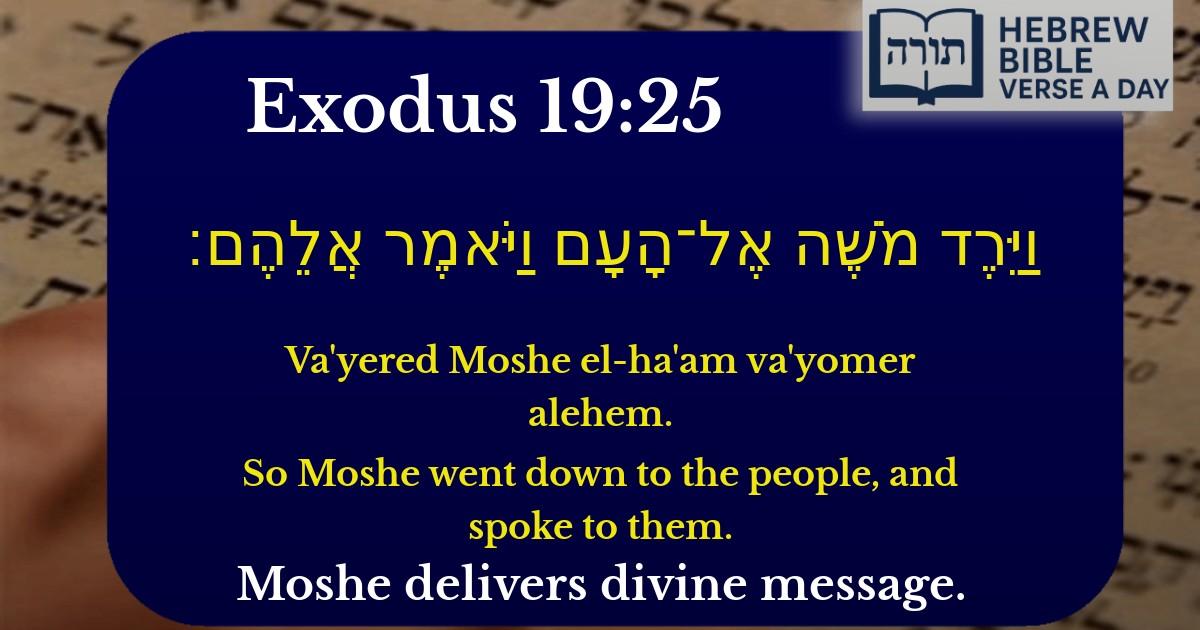Join Our Newsletter To Be Informed When New Videos Are Posted
Join the thousands of fellow Studends who rely on our videos to learn how to read the bible in Hebrew for free!
Hebrew Text
וַיֵּרֶד מֹשֶׁה אֶל־הָעָם וַיֹּאמֶר אֲלֵהֶם׃
English Translation
So Moshe went down to the people, and spoke to them.
Transliteration
Va'yered Moshe el-ha'am va'yomer alehem.
Hebrew Leining Text
וַיֵּ֥רֶד מֹשֶׁ֖ה אֶל־הָעָ֑ם וַיֹּ֖אמֶר אֲלֵהֶֽם׃ <span class="mam-spi-samekh">{ס}</span>
וַיֵּ֥רֶד מֹשֶׁ֖ה אֶל־הָעָ֑ם וַיֹּ֖אמֶר אֲלֵהֶֽם׃ {ס}
🎵 Listen to leining
Parasha Commentary
📚 Talmud Citations
This verse is not quoted in the Talmud.


Rashi's Explanation
Rashi (Exodus 19:25) explains that Moshe descended from Har Sinai to the foot of the mountain where Bnei Yisrael were encamped. The phrase "וַיֵּרֶד מֹשֶׁה" ("So Moshe went down") emphasizes Moshe's humility—despite his elevated spiritual state after ascending the mountain, he lowered himself to communicate Hashem's words to the people on their level.
Rambam's Perspective
In Moreh Nevuchim (1:54), Rambam discusses how Moshe served as the intermediary between Hashem and Klal Yisrael. This verse demonstrates Moshe's role as the faithful transmitter of divine commandments, ensuring the people received the Torah with clarity and without distortion.
Midrashic Insights
The Mechilta (Yitro, Massechta DeBaChodesh 9) elaborates that Moshe's descent was not merely physical but also symbolic of bringing kedusha (holiness) from the heavenly realm to the earthly camp. This mirrors the later giving of the Torah, where Hashem's presence descended upon Har Sinai.
Talmudic Context
In Maseches Shabbos (89a), Chazal discuss Moshe's unique role in bridging the gap between the divine and human realms. This verse is cited as an example of Moshe's tireless dedication to fulfilling his mission as Hashem's emissary to Am Yisrael.